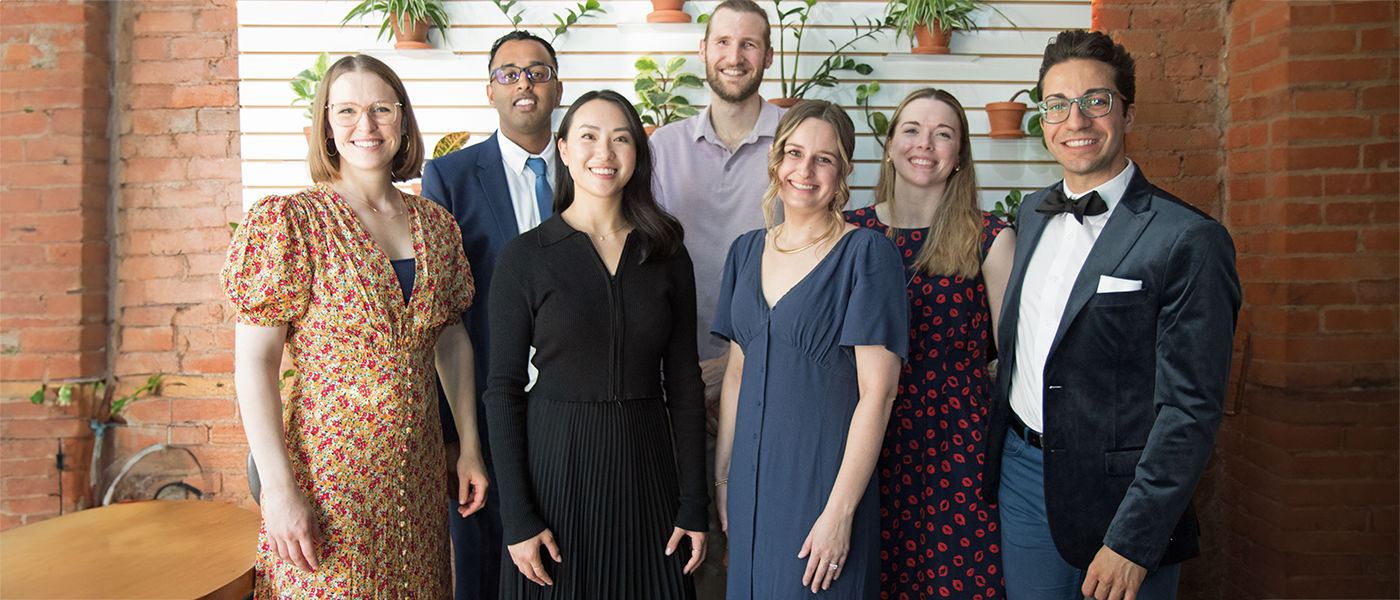Residency Program at McMaster
Welcome to the McMaster Geriatric Medicine Residency Program! Our program is designed for the training of PGY4 and PGY5 residents after completion of Core Internal Medicine to become outstanding geriatricians. We highlight excellence in clinical care as our core value and draw upon award-winning faculty members’ ability to prepare residents to become leaders in education, quality improvement and innovation, and research. We also prioritize our responsibility to advocate for vulnerable and marginalized members of our society and strive to build a diverse and inclusive residency program. We recognize structural and individual barriers to persistent health inequities and aim to engage those traditionally underrepresented in medicine through faculty and resident-led initiatives.Welcome
Welcome to the McMaster Geriatric Medicine Residency Program! Our mission is to train 21st-century geriatricians who are skilled in the optimal care of older adults in all care settings (inpatient medicine, outpatient clinics, outreach, long-term care, and virtual care).
We are a mid-sized program that takes pride in having engaged and caring world-class faculty in a network of tertiary-care hospitals, community hospitals, and private practices. Our residents have exposure to diverse patient populations and many opportunities to take part in innovative clinical programs such as GeriMedRisk and iGeriCare as well as research through our GERAS Centre for Aging Research, McMaster Institute for Research on Aging (MIRA), and Schlegel-University of Waterloo Research Institute for Aging. We foster a supportive, resident-centred educational environment with a focus on flexibility to tailor the program to meet individual resident career goals.
Entry Requirements and Deadlines
Applicants apply through the CaRMS Medicine Subspecialty Match (MSM). Full requirements can be found on their website.
Goals & Competencies
Geriatricians provide diagnosis and treatment of a broad range of medical issues in hospitalized and ambulatory older adults. Geriatric Medicine’s expertise can be described by the 5Ms: Mind, Mobility, Medications, Multi-complexity, and what Matters most to the patient and family. Geriatricians integrate all the CanMEDS Roles, applying medical knowledge, clinical skills, and professional values in their provision of high-quality and safe patient-centred care.
Rotational blocks are structured to meet Royal College Geriatric Medicine Training Requirements while allowing for flexibility to individual residents’ learning needs. A longitudinal chief clinic provides opportunities to develop strong therapeutic relationships with patients and families, as well as familiarity with the natural progression and management of geriatric syndromes. Our weekly academic half-day offers highly curated sessions with sought-after faculty members both within and outside our division to round out a robust formal curriculum.
Transition to Discipline
This stage of training (~6-8 weeks) aims to introduce the trainee to the subspecialty of Geriatric Medicine. Potential rotations include Ambulatory Care, Inpatient Geriatric Consultation, and Inpatient Rehabilitation.
Foundations of Discipline
The Foundations of Discipline stage of training (~6-8 months) focuses on older adults presenting with common geriatric medical conditions and syndromes and related functional issues in different practice settings. Potential rotations include Mixed Subspecialty clinics (including neurology, osteoporosis, physiatry), Rehabilitation, Geriatric Psychiatry, and Inpatient Consultation Services.
Core of Discipline
The Core of Discipline stage of training (~12-14 months) focuses on the comprehensive management of older adults with functional decline and multiple co-morbidities across the spectrum of frailty in a range of care settings. Potential rotations include Clinical Pharmacology, Geri Med Risk, Palliative Care, Movement Disorders, and Long Term Care.
Transition to Practice
The Transition to Practice stage of training (~1-2 months, as well as longitudinal) focuses on practice management and consolidation of skills needed to manage the caseload of a consultant geriatrician. These competencies are developed during the longitudinal chief clinic, junior attending rotations, administrative rotations, and scholarly work.


